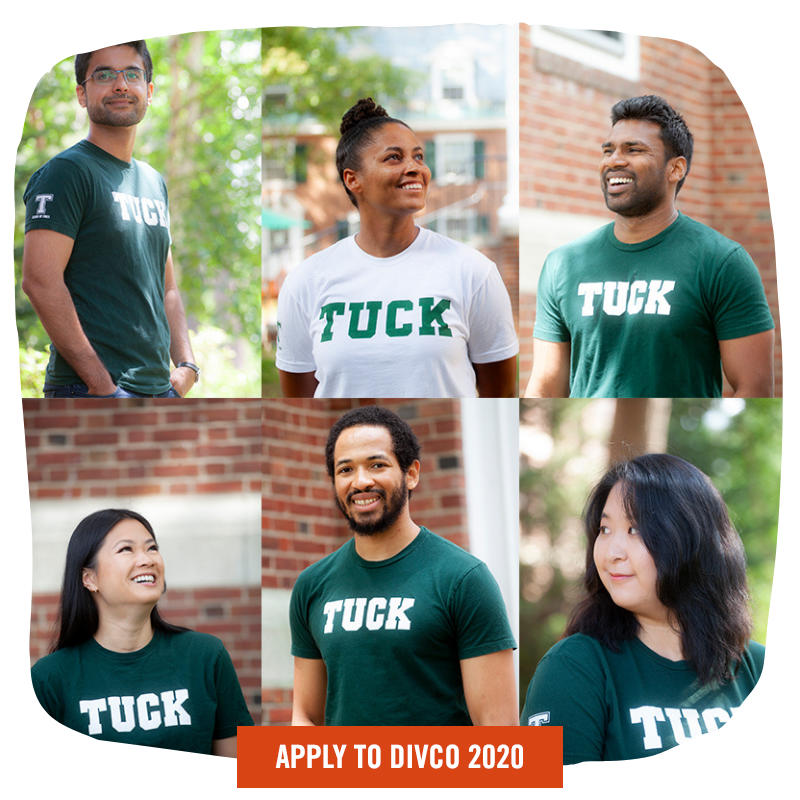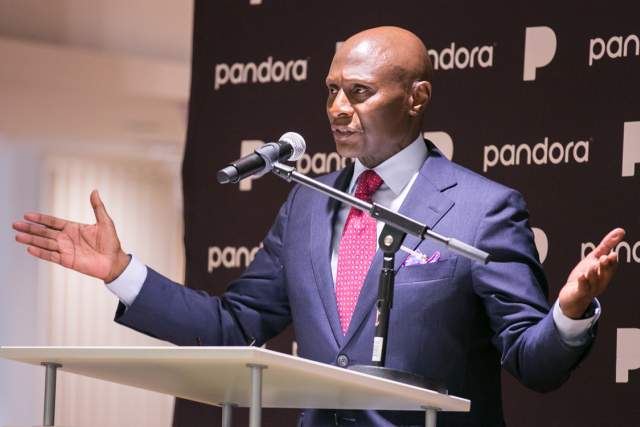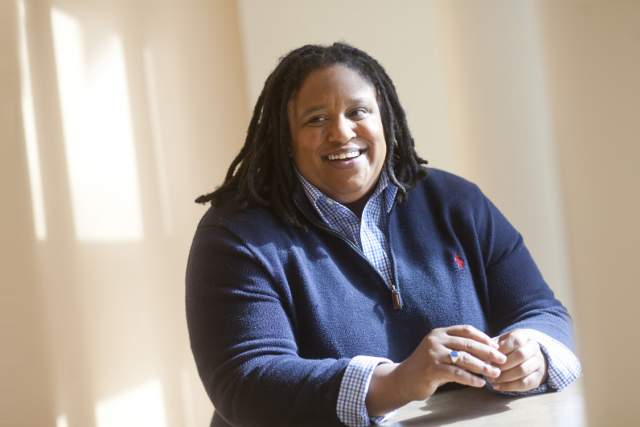Every year, the Tuck Diversity Conference brings together prospective students from all backgrounds, and from all over the world, for a weekend of community-building, networking, mentorship, and rich programming delivered by Tuck’s impressive alumni and world-renowned MBA faculty.
While this year’s conference will be held virtually, the opportunities to connect, reflect, and experience what makes Tuck so distinct remain the same. Tuck alumna Mariana Garavaglia T’08, chief business operations officer for Peloton, will lead the keynote session and share what “Empower Every Voice” has meant through her own personal and professional journey.
As we look ahead to the 26th annual Diversity Conference, to be held October 30 - November 1, 2020, we asked the conference co-chairs—T’21s Nichula Witharana, Kristen Hughes, Rukhaam Mahar, Greg Dessources, Elisabeth Sum, and Kristin Ng—to share more about their personal journeys and what Empowering Every Voice means to them personally.
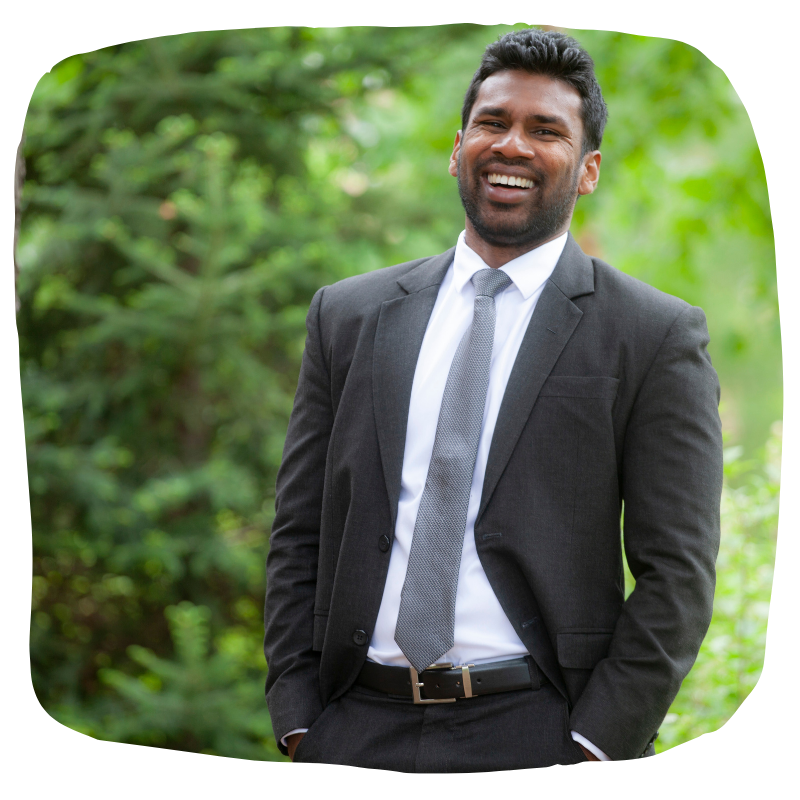
Empowering Every Voice is the idea of creating a culture in which each individual feels comfortable sharing their views/opinions/ideas regardless of his/her background, including any language barriers.
Nichula Witharana T’21
Empowering Every Voice is the idea of creating a culture in which each individual feels comfortable sharing their views/opinions/ideas regardless of their background, including any language barriers.
Before joining Tuck last year, I lived almost all of my life in Colombo, Sri Lanka, my hometown. Apart from a few months of project work in the UK, I did not have much experience working/studying with such a diverse group of individuals in a foreign country. I knew it was going to be a tough transition for me, but it was worse than I expected. During my first few months at Tuck, I did not feel comfortable and couldn’t be myself most of the time. I didn’t try to talk to my classmates much and didn’t make any effort to meet new people.
With time, I realized that I needed to make some effort and put myself out there. I attended more small group events, social events and reached out to get help with my skiing or to help with corporate finance. Getting to know more Tuckies helped me be myself and enjoy my time at Tuck. Now, I am more comfortable taking part in conversations, expressing my opinion in academic as well as social settings. I believe Tuck has a culture of empowering every voice. However, sometimes individuals might not feel comfortable because of the new environment they get into at Tuck. For instance, as an international student, everything was new to me, from food to sports, to conversations about alma maters. In the beginning, I felt embarrassed about not knowing anything, but then I realized it is completely fine; how am I supposed to know? I felt comfortable asking questions such as, what are biscuits and gravy? What do you mean by “She’s so Californian”?
I believe, to create an empowering culture we need to encourage everyone to ask questions. If you’re new to an environment, you are not expected to know anything about the place or culture. You don’t have to feel embarrassed; it’s fine to feel nervous; everyone feels the same way in a new environment.
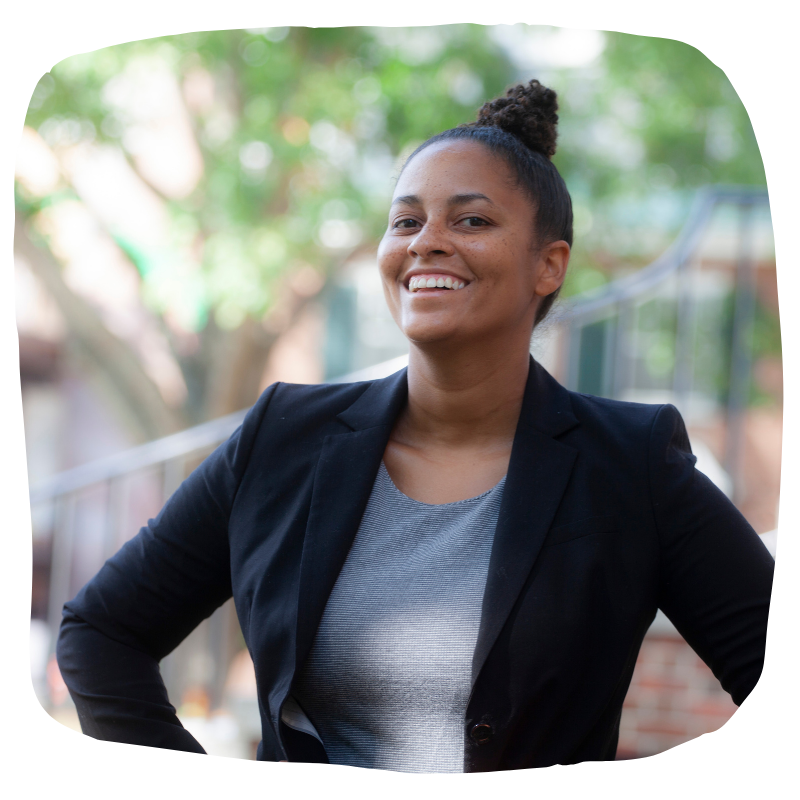
Empowering Every Voice captures the belief that we are all storytellers. When we create a space where we can be authentic and share our stories, we build collective understanding and belonging.
Kristen Hughes T’21
Empowering Every Voice captures the belief that we are all storytellers. When we create a space where we can be authentic and share our stories, we build collective understanding and belonging. Each participant at DivCo, whether you are a prospective student, current student, alum, or company representative, will join the conference with their own set of experiences. As members of marginalized and oppressed communities, there is a lot of power and pride I feel for how this group has navigated their journeys and gotten to this place in our careers. We are authentic and unapologetic in who we are, what we stand for, and what we want. I look forward to sharing more about Tuck but also to hearing from prospective students about what type of institution they’re looking to be a part of.
When I attended DivCo, I was anxious to see what life was going to be like in Hanover. As a queer black woman, I had apprehensions about my ability to fit in if I was going to be living in the middle of nowhere in New England. DivCo gave me the opportunity to see people that looked like me thriving in Hanover, NH. I chatted with current students and got to hear what their day to day life was like. They eased my nerves and allowed me to envision myself as a part of the Tuck community. The most powerful moments were those when I looked around and got to take in the sheer volume of talent at the conference. Seeing nearly 100 BIPOC and queer participants—the future business leaders of the world—gathered in a room together made me feel like I was a part of something bigger than myself. This wasn’t just about me. This was about all of us claiming our space, finding belonging, and continuing to write our stories. I’m glad we can continue to carry on this tradition at this year’s virtual DivCo.
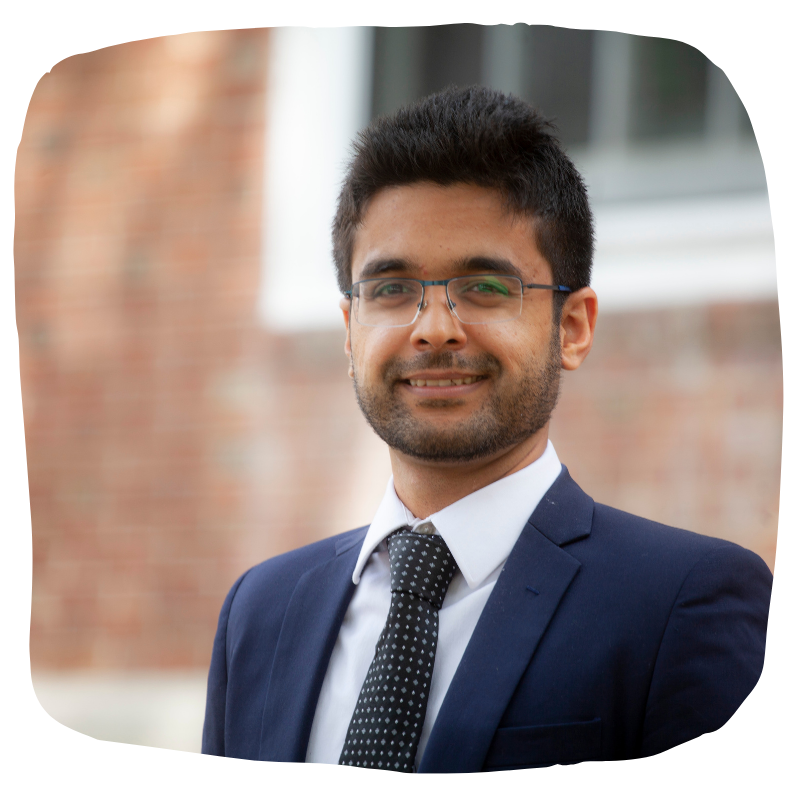
Empowering Every Voice is the idea of breaking long-held stereotypes and unconscious biases defined by societal rules and cultures. It is about having a space where we have true equity and belonging—where all stakeholders get the respect, the consideration, and the space they need to fulfill their potential."
Rukhaam Mahar T’21
Empowering Every Voice is the idea of breaking long-held stereotypes and unconscious biases defined by societal rules and cultures. It is about having a space where we have true equity and belonging—where all stakeholders get the respect, the consideration, and the space they need to fulfill their potential. It also means having a safe and inclusive environment where every voice is equal and heard and where everyone can feel that they can be their authentic selves and that they do have a voice. Everyone has a story to share, and everyone brings with them unique backgrounds, unique career paths, and interesting talents. Empowering every voice allows us to leverage such diverse viewpoints and grow as a person and as a leader.
I was born to a Sindhi family in Pakistan, a country where the Sindhi comprise only about 10 percent of the population. I did not know this at the time, but in my childhood years, the only reason I wasn’t ostracized for being a part of a national minority, was because my grandfather was the only doctor in town and our family was respected for that reason.
When my father got posted to Punjab, and I was about to begin school, I found that people felt I was different, and that in Pakistan being different wasn’t always a great thing. Because my father is a government officer, he was re-assigned every two to three years to a new location which is why I learned to constantly adapt to different cultures within Pakistan, while maintaining my own identity. While inadvertently I was learning a lot about Pakistan’s geography and cultural makeup, I was also learning how to fit in as not only a new kid on the block every time, but also as someone underrepresented in my home country. Very soon, this new-found skill started shaping my adolescent and then adult life choices. For my undergraduate studies, I chose to attend Lahore University of Management and Sciences (LUMS), one of the most competitive, but also the most diverse university in Pakistan as it attracts top talent from every nook and corner of Pakistan. Upon graduation, I joined PwC, a global consultancy firm, in their Qatar office, to keep learning about new cultures and gaining international exposure, and eventually was posted to the Bay Area in the U.S., where PwC is headquartered. The Silicon Valley office gave me exposure not only to new accounting rules and standards, but also to a whole new business and cultural world. To further grow my career and achieve my goal of working in investment banking, I decided to pursue an MBA and Tuck was an easy choice as I was looking for a program with tight-knit community experience.
Now that I have lived in the U.S. for almost three years and completed my first year at Tuck, I recognize that ever since I was a child, I was looking for a place of diversity where everyone could be comfortable being who they are, while embracing the difference of others. I know that this acceptance is the cornerstone of Tuck’s community and I am hoping to contribute to diversity initiatives at Tuck in my role as a co-chair of the 2020 Diversity Conference. I am honored to be a part of the Tuck MBA program dedicated to working towards diversity and inclusion and I hope to contribute my bit as a member of the Tuck community.
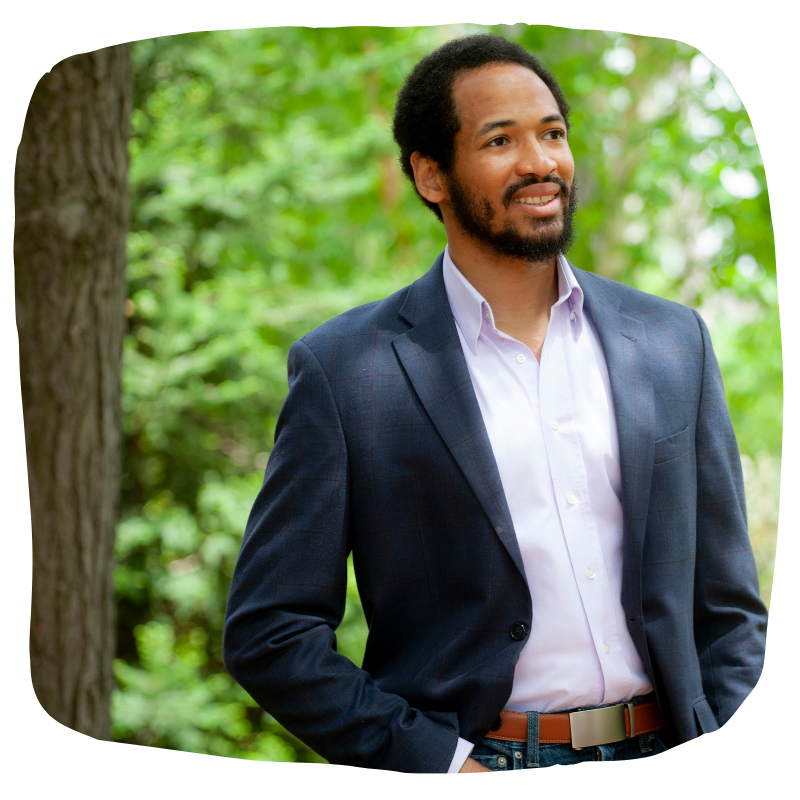
To me, true diversity is about creating an environment where all ideas and perspectives are heard with an open mind and are assessed on their own merit.
Greg Dessources T’21
Empowering Every Voice means creating a culture where everyone feels that it is not only okay to share your opinion, but it is expected! We come from such a diverse set of backgrounds—cultural, national, educational, etc.—and the best way for us to grow and succeed is to leverage all viewpoints.
In my early teens I moved from the city to the suburbs. I went from being surrounded by other black and brown faces to being one of a handful of black students in my grade. On top of that, my family was not as well off as most of the others in this affluent Massachusetts suburb.
Suddenly, I went from a world that I understood and felt confident in, to one where I was an outsider and where I did not think I could relate to others. On the surface, I was told that I was fully part of the community but the actions of a few, and the inactions of the many, made it clear that I was not. The way folks would say “of course you would think that” made it clear that my perspective was not wanted. Before long, I stopped offering it.
This attitude of keeping my head down and not sharing my perspective stayed with me through undergrad and the start of my career. Things started to change when a manager at work, who later became a mentor, began to loop me into projects that I was unfamiliar with because I had a “fresh set of eyes”—aka a different perspective. Some of the best work I’ve done and seen has happened when teams shake things up and actively seek a variety of viewpoints and approaches.
I am at the point now where I gladly offer my viewpoints and encourage others to do the same. So many great ideas never saw the light of day because the person who thought them was dismissed. To me, true diversity is about creating an environment where all ideas and perspectives are heard with an open mind and are assessed on their own merit.
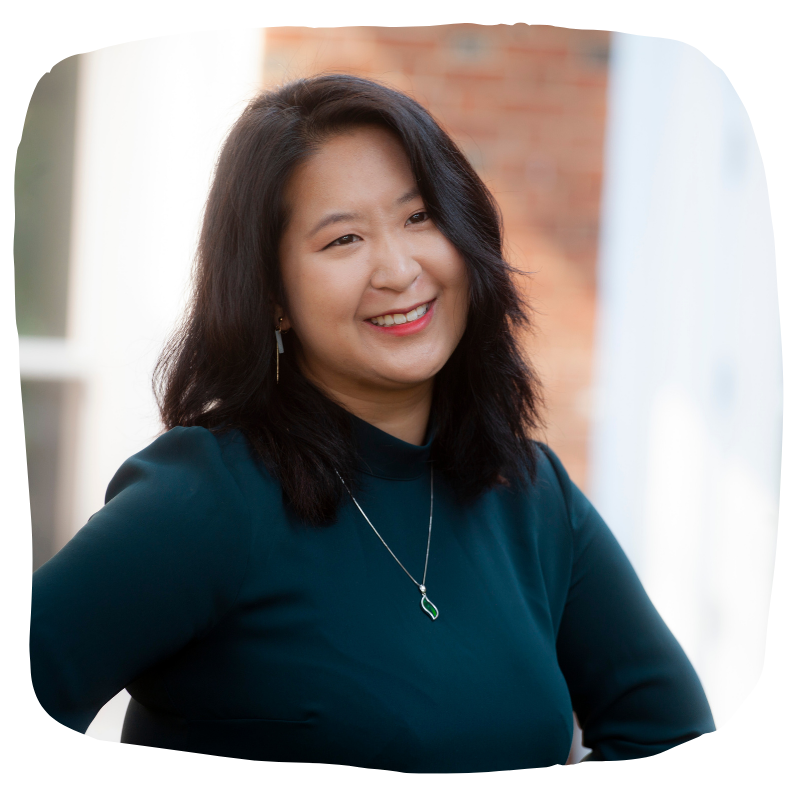
Empowering Every Voice is striving for an environment where diversity AND inclusion on any trait level, from those on the surface to those layers below, are celebrated no matter how different they may appear.
Elisabeth Sum T’21
Empowering Every Voice is striving for an environment where diversity AND inclusion on any trait level, from those on the surface to those layers below, are celebrated no matter how different they may appear.
I grew up in a predominantly Caucasian neighborhood and I remember how palpable the feeling of being “different” was. Aside from the stares and comments, the starkest part of feeling “different” was in how I was raised. My parents are immigrants from Hong Kong and Taiwan and I was raised to appreciate my heritage despite being American born. But connecting my racial roots, speaking Cantonese before I could even speak English, celebrating the Lunar New Year more than Christmas, meant a gap was forming beyond my awareness. I felt alienated from my American classmates because we couldn’t connect on idioms, traditions, or even values. It’s not as common as you think for first-generation minorities to feel more connected to their ethnic heritages and I was definitely in the far outlier range.
Later, when I lived abroad in Asia as a teen, despite looking more like the people around me, I felt just as “on the outside.” From my accent to my clothes, to even how I apparently carried myself, I was instantly pointed out as “American” and déjà vu set all over. I felt I was straddling the motions of being “American” and being “Chinese,” balancing unsuccessfully and not feeling fully accepted in either circle. I later learned this phenomenon is called “third-culture kid” because I was somewhere in between; a limbo.
So, I didn’t feel like I belonged as an American even though I’m proud to be an American; and I didn’t feel like I belonged as a Chinese-Cantonese even though I was proud of that too. So where did I belong? Only after years of soul-searching and outreach work in the community did I realize that even though the world is seeming to make you choose a side, the diverse parts of my ethnicity made me “me.” My diversity cannot be replicated. And that is a source of celebration because that’s my identity. No one should take that away from me.
To me, my experience of being a uniquely Cantonese-American female was obvious. But in my teens, it was quickly apparent that it wasn’t as obvious to others. To this day, I still get these questions: Are you Asian? What kind of Asian? Are you Korean? No, Japanese? So you must be Chinese. Cantonese, what’s that? Isn’t Hong Kong the same as China? What’s the difference between being Asian and Asian-American? There were so many subtleties of who I was as a diverse person that couldn’t just be expressed in casual conversation, but still, should be explained because frankly no, we’re not all the same.
Having these experiences, as I grew older, I noticed that while the word diversity is thrown out in many places, one, there was more talk than action, and two, there were more weary sentiments than positive ones. That’s what inspired me to serve on the board of PG&E’s Asian Employee Resource Group for 6 years. I wanted to give back and show peers and the larger Northern California community that even in a so-called “majority,” there are nuances. And rather than pointing out nuances uncomfortably like a sore thumb, celebrating thereby educating is a much more lasting impact for all parties.
And it’s not just my ethnicity. I am Cantonese, an American-born Chinese, but I’m also a woman, a first-born daughter, a woman from California (because that is also an ethnicity in itself), a woman who worked in the energy sector which is <20% female. Just as much as my race is a characteristic of who I am, so are my other traits and even though people see my gender and skin first, I want them to celebrate my other layers that they can’t see on the surface – and that’s how I treat diversity AND inclusion – a celebration of what we cannot see but have to work to divulge. The most formative diversity and inclusion experiences I’ve had to date are through conversations celebrating the unique parts of who we are and that’s the type of environment I’m hoping to bring as a co-chair to the 2020 Diversity Conference.
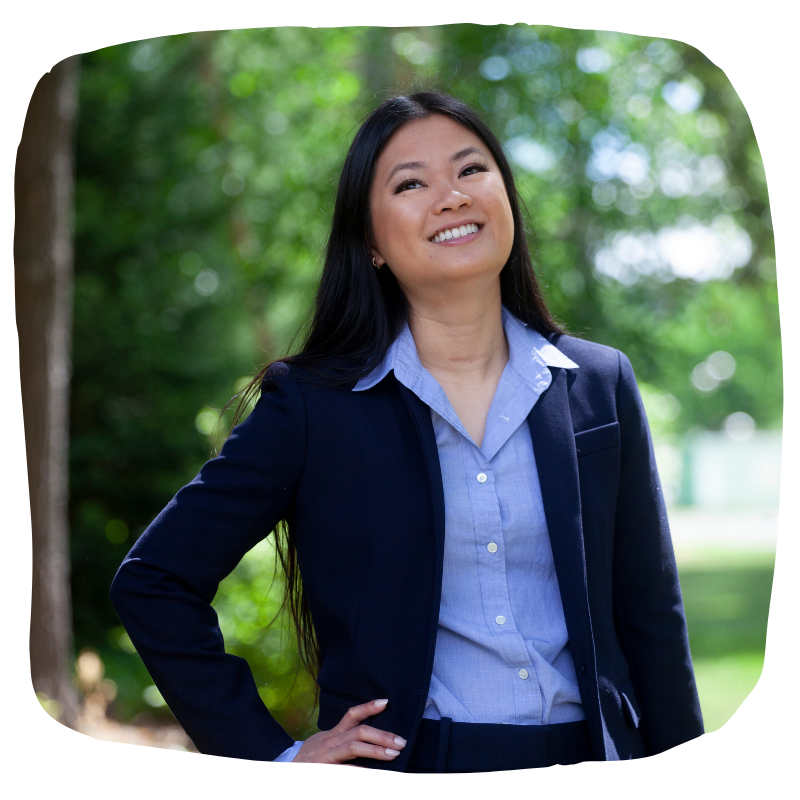
Empowering every voice means giving rise to the tidal wave of voices that are demanding equality and no longer to the minority that looks to deny progress.
Kristin Ng T'21
It was a blustery November morning in 2018 when I boarded the Dartmouth Coach on 42nd Street, a few blocks from my office, to make the trip to Hanover. I had taken an Uber from my apartment and stopped a block away from the bus stop to buy a bagel at Zucker’s for the ride. A few hours later, I found myself transported to an idyllic, New England college town. I consulted a map of the Dartmouth campus on my phone and dragged my luggage across The Dartmouth Green towards Tuck, the wheels kicking up dust from the lawn’s dirt paths. I remember feeling out of my element: after eight years in Manhattan, it felt almost unnatural to be surrounded by mountains and trees.
What I remember most from DivCo 2018 were the little things. I remember walking through Stell Hall for the first time and speaking to Sally Jaeger (Associate Dean of the MBA Program), commenting that this reminded me of a building on my undergraduate campus. I remember the Small Group Dinner at Sachem, making easy conversation with my peers. More than the Blacklight Party itself, I remember sitting in T’20 Sonovia Wint’s (my host for the weekend) dorm room in Whittemore before the party, cutting up and tying the gigantic t-shirts we had been given so they would fit better, and braiding my fellow DivCo attendees’ hair. That Sunday, I canceled my bus return ticket and left Hanover with a group of new friends. We drove a rental car back to Manhattan, stopping for brunch in Brattleboro, VT.
While DivCo 2018 passed by in a blur, I remember those moments so vividly and a voice that said to me, “You can thrive at Tuck. This is where you need to go.”
Up until DivCo, I wasn’t sure if I was ready to make that leap. I was comfortable in my job as an equity-derivative sales-trader, a vice president in the financial capital of the world, but there was a little voice asking me if I was truly content with my professional career—a voice that only grew louder after a personal health crisis. When I told my parents that I was going to Tuck, they were skeptical. Why would I give up a lucrative career to “go to school in the middle of the forest?” I was the first member of my family to graduate from college in four years and I would be the first to go to graduate school.
My first year at Tuck was incredible, even when accounting for changed expectations regarding COVID. I’ve opted to look on the bright side of things. I’m grateful above all for my health. I’m grateful for my network of friends, Tuckies and non-Tuckies, near and far, and my family. Having helped organize the world’s largest virtual summit on agtech, I know that there are opportunities to connect virtually that can be even better than in real life, which is why I’ve been so excited to work with my team of fellow DivCo Chairs to organize the first all-virtual DivCo.
I’ve been in charge of sponsorship and it’s been an amazing experience, working with corporate partners who are dedicated to increasing diversity and bringing about lasting institutional change. I am so grateful to our partners who have made these issues a priority, as they, too, are dealing with the dual issues of a pandemic and a recession.
Our theme this year, “Empowering Every Voice,” was deliberately and carefully discussed among the chairs. With increasing realization that racism is far from over and with a heightened awareness of violence against BIPOC, there have been many instances over the last few years when I’ve felt sorrow and pain. However, as a nation we are also seeing an exhilarating change in attitudes and I’ve been inspired to see voices that have historically been ignored now being acknowledged, raised, and valued. More than ever, we’re also witnessing allies of the equality movement commit their time, money, resources, and platforms to this cause. It's clear that the movement towards equality will require the volume and weight of every voice. Empowering every voice means giving rise to the tidal wave of voices that are demanding equality and no longer to the minority that looks to deny progress.
I am so thankful to be a part of an amazing group of students, faculty, and staff dedicated to addressing issues of diversity and inclusion and I am honored to be part of an enduring Tuck tradition.
